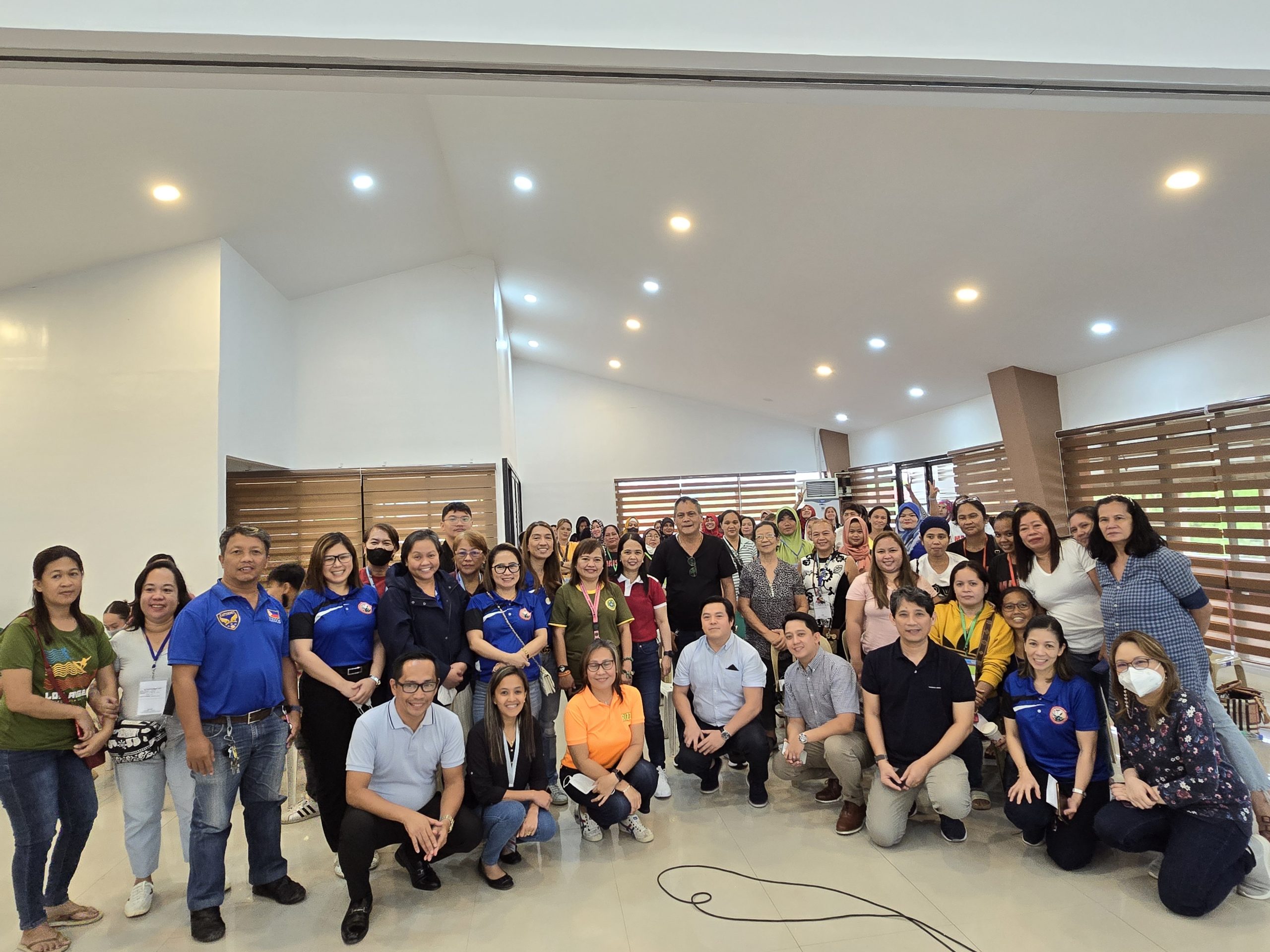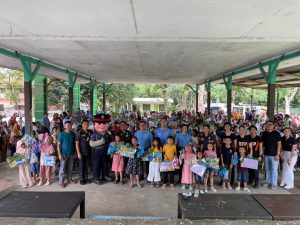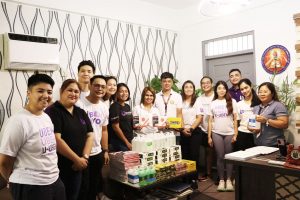THE CITY Health Office (CHO) disclosed a staggering revelation: a total of 6,252 confirmed dengue cases were reported within the locality from January to December 2023. This alarming figure represents a significant 65.4 percent surge compared to the previous year’s tally of 3,758 confirmed cases. Tragically, the dengue mortality rate in the city has also witnessed a distressing escalation, with recorded deaths soaring from 21 in 2022 to a heartbreaking 51 in 2023.
Thus, as part of the city’s strengthened anti-dengue efforts, the Philippine Pediatric Society Davao Southern Mindanao Chapter (PPS-DSMC), in partnership with the DOH XI and Takeda Healthcare Philippines, organized a dengue awareness lecture at Barangay Talomo Proper in Davao City.
Empowering local communities to fight dengue
Dengue is an acute mosquito-borne viral infection common in tropical countries like the Philippines. The dengue virus (DENV) is transmitted through a bite of dengue-infected Aedes aegypti and Aedes albopictus mosquitoes. According to the Department of Health (DOH), during warmer, summer months these mosquitoes can lay eggs in any space or container that holds clear and stagnant water like a bottle cap, dish dryer, plant axil, gutter, trash can, old rubber tire, and similar vessels. They usually bite between 2 hours after sunrise and 2 hours before sunset and can be found inside and outside the house.
During the awareness campaign lecture, Kagawad Rizza Blanco, chairperson of the Barangay Committee on Health and Sanitation, Dr. Farrah Faro, the dedicated barangay health officer, and over 80 participants, including health workers, sanitation personnel, community social workers, and representatives of community organizations, gathered with a shared purpose: to enhance their knowledge and skills in the battle against this relentless disease.
Embarking on a mission to empower communities, Dr. Diana Dadia, a pediatric intensivist, and Marie Cris Modequillo, a dedicated medical technologist from DOH Region 11, shared invaluable insights on dengue prevention, control, and disease management. Their expertise shed light on the critical aspects of this relentless disease.
According to Dr. Dadia, recognizing the symptoms of dengue is vital. These include high fever, severe headache, joint and muscle pain, red spots on the body, fatigue, nausea, and vomiting. In severe cases, dengue can progress to dengue hemorrhagic fever or dengue shock syndrome, characterized by abdominal pain, bleeding, difficulty breathing, and a significant decrease in blood pressure.
Diagnosis involves blood tests, while treatment focuses on symptom relief, hydration, and supportive care, as there is currently no specific antiviral medication. Severe cases may require interventions such as intravenous fluid replacement, blood transfusions, and intensive care monitoring. It is crucial to note that dengue can have long-term side effects, underscoring the importance of seeking immediate medical attention for suspected cases, particularly in endemic areas.
Meanwhile, Ms. Modequillo emphasized the significance of communication campaigns on cleanliness, the use of insecticide-laced mosquito nets and repellents, as well as the implementation of local government health ordinances and initiatives. These strategies play a pivotal role in prevention, ensuring that communities are equipped with the knowledge and resources to combat dengue effectively.
The Davao CHO also announced the strict implementation of Ordinance No. 0401-20, Series of 2020, which mandates the creation of a Dengue Task Force in barangays as part of strengthening efforts to combat dengue.
“In our commitment to dengue advocacy, we have fortified our programs and activities against the rising dengue cases. Dengue is no longer a seasonal concern but a persistent endemic challenge, necessitating heightened efforts,” said Dr. Cleofe Llanos, president PPS-DSMC. “Our collaboration with the Department of Health (DOH) and City Health reflects our dedication to raising awareness and educating the public on different diseases and vaccinations.”
Strengthening public health interventions
Immunization programs are considered among the most important public health interventions. Governments diligently enhance national immunization programs by consistently bolstering their infrastructure, implementing rigorous monitoring mechanisms, and expanding outreach initiatives. These proactive measures aim to fortify vaccine coverage, ensuring comprehensive protection against a spectrum of preventable diseases.5
“In the National Immunization Plan, the assessment considers the vaccine’s impact, analyzing how many vaccinated individuals will be protected, even those not directly vaccinated. It’s essential to focus on vulnerable age groups,” highlighted Dr. Rontgene Solante, President of the Philippine College of Physicians.
The WHO’s Strategic Advisory Group of Experts on Immunization (SAGE) recommends considering the use of a live-attenuated tetravalent second-generation dengue vaccine, for introduction in areas with high dengue disease burden and transmission intensity, particularly for children aged 6 to 16, targeting the age-specific peak incidence of dengue-related hospitalizations, which should be 1- 2 years earlier.
One of the dengue vaccines, TAK003, is currently available for children and adults in the private market in more than 30 countries across Europe, Indonesia, Thailand, and Brazil.
“Our primary goal is to regain the public’s confidence, alleviate fears, and enhance trust to address vaccine hesitancy,” noted Dr. Ma. Delta Aguilar, pediatric infectious disease consultant. “Adopting a patient-centered health paradigm is crucial. This involves examining vaccine hesitancy within families and among healthcare professionals, addressing trust issues, and building confidence.”
Partnerships are crucial in protecting public health from the menace of dengue. By cultivating collaborations, communities can establish an extensive network committed to increasing awareness, executing proactive healthcare initiatives, and strengthening defenses against dengue. This strategy not only emphasizes the vital role of collective action in preserving and advancing public health, but also serves as a powerful reminder of the importance of unity and collaboration in our pursuit of a healthier future.
To learn more about prevention tips and the latest health updates on dengue, follow Iwas Dengue on Facebook: https://www.facebook.com/iwasdenguepilipinas or visit the website http://iwas-dengue.ph.




